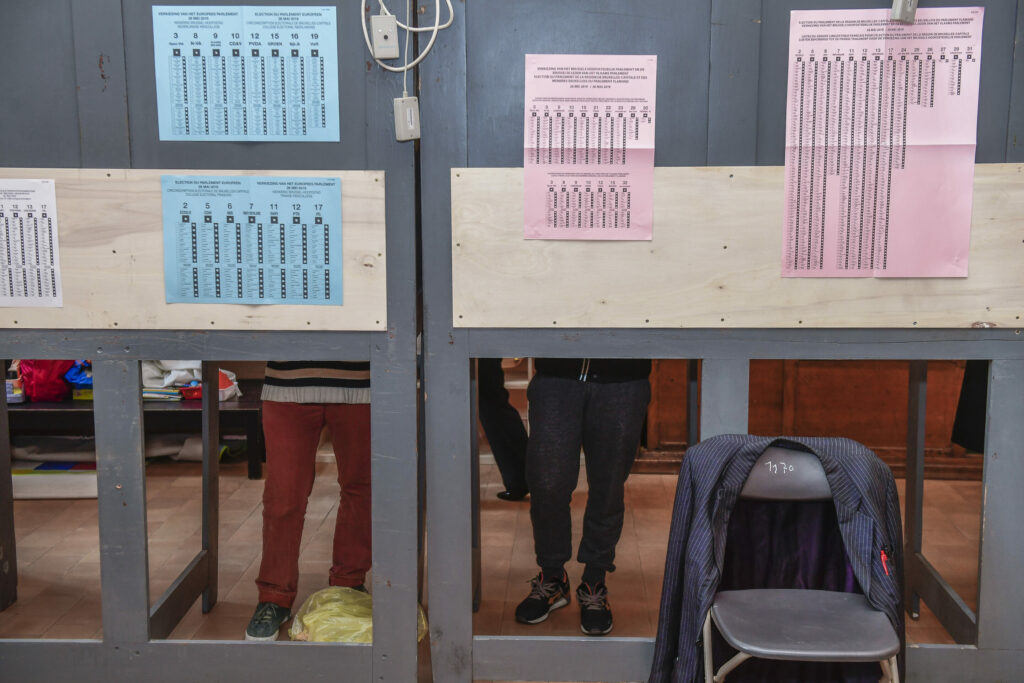Young people aged 16 and 17 will be obliged to vote in the European Parliament elections after all, the Constitutional Court ruled on Thursday. The judge stated that they should be treated in the same way as adult voters.
Belgium first said that it would extend the right to vote for the European Parliament over two years ago, allowing young people from the age of 16 to vote (down from the age of 18). It was confirmed last May that 16- and 17-year-olds – some 270,000 people in Belgium – would be allowed to vote in these elections, which will be held alongside the country's federal and regional elections on 9 June 2024, but only after registering, just like EU citizens have to do.
Several months later, the Belgian Constitutional Court ruled that registration was no longer needed, as it stated it was "not reasonably justified" to make their right to vote dependent on such registration. However, voting was still not compulsory for 16- and 17-year-olds, unlike for adults. A Belgian man went to the Constitutional Court to denounce this inequality, and is now getting his way, as that rule is also being overturned.
Translation: "Following the suspension of a legislative provision on the organisation of the European elections, 16- and 17-year-olds are obliged to participate in the vote."
The Court stated that it is not permissible for 16- and 17-year-olds to have the choice to vote or not, while adult voters are subject to Belgium's standard obligatory voting rules, as this would create an unjustifiable distinction between different kinds of voters. "The difference in the treatment of voters according to whether they are adults or minors does not appear to be justified by compelling reasons of public interest," it said.
Essentially, this means compulsory voting now also applies to voters aged 16 and 17, meaning they will automatically be placed on the electoral rolls and will receive a convocation letter like adults.
Furthermore, people from the age of 16 can be sanctioned if they fail to vote. Home Affairs Minister Annelies Verlinden already pointed out to Belga News Agency that punishments for adults cannot simply be applied to minors, and therefore asked Justice Minister Paul Van Tigchelt to work out a solution.
Youth organisations such as the Flemish Scholierenkoepel (umbrella organisation for Dutch-speaking pupils) criticised the new policy. "This has to be re-explained to hundreds of thousands of schoolchildren for the third time – not ideal, especially so close to the elections," Lore Sleeckx, president of the group, told VRT.
What does this mean for young EU citizens?
The Brussels Commissioner for Europe and International Organisations (commissioner.brussels) also criticised the lateness of the decision and the fact it leaves 16- and 17-year-old EU citizens living in Belgium in the dark, as it is unclear if the rules will change for young EU citizens.
"This is a very fresh decision from the Constitutional Court, so we need to see what it means in practice," Brussels Commissioner for Europe Alain Hutchinson told The Brussels Times. "But it seems likely that voting will now also be obligatory for any 16- or 17-year-old EU citizens who are registered on the electoral list."
He argued that the latest possible change in the rules just ten days before the deadline to register to vote is "regrettable", as it leaves them with just a few days to decide whether or not to participate in their first-ever elections.
"I hope it does not confuse or discourage young Europeans in Belgium from participating in their first election," Hutchinson added. "Whatever the decision, we need to make sure that all young people in Brussels – including EU citizens – receive the correct information about their rights."

